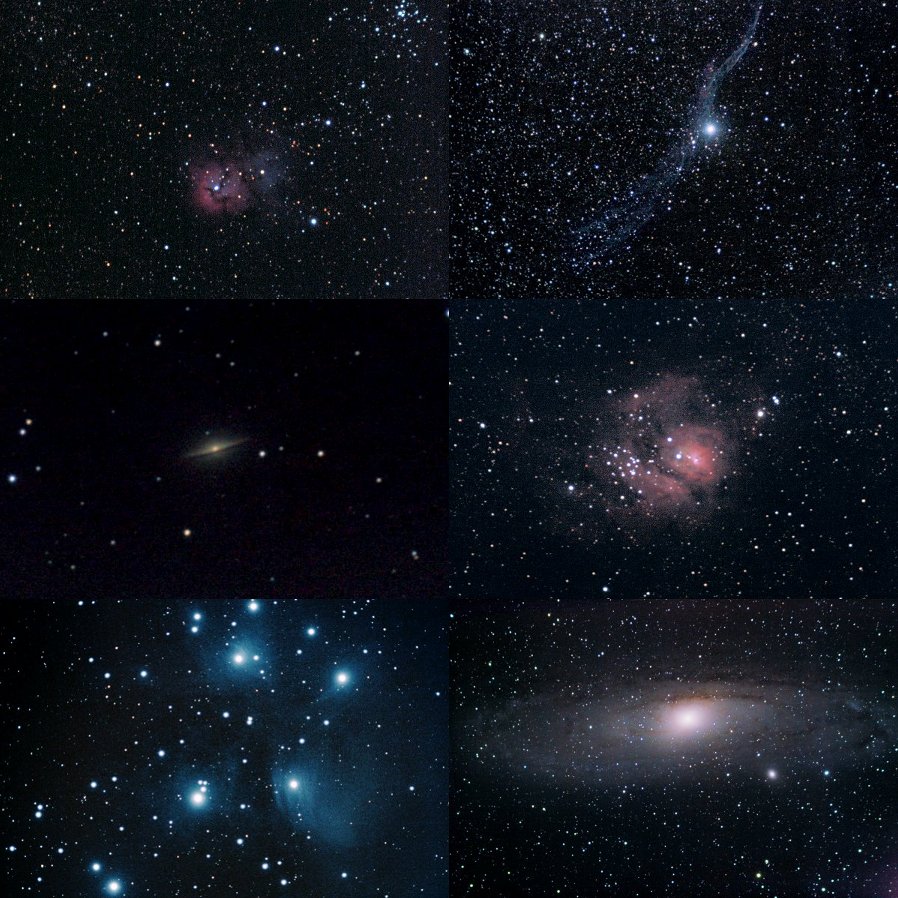
dph1nm
-
Posts
2,053 -
Joined
-
Last visited
Content Type
Profiles
Forums
Gallery
Events
Blogs
Posts posted by dph1nm
-
-
Assorted shots with a Nexstar 102SLT and a Canon 1000D. 30sec subs at ISO1600. Total exposures range from 5 mins (M20) to ~1hr (M31).

NigelM
-
 27
27
-
-
Remember to take a bias (or a 'dark flat') at the same ISO as the flat, otherwise the flat-fielding won't work.
NigelM
-
 1
1
-
-
Oh go on, I will mention the 'f-ratio myth'. Look it up on Google ...
... and just reflect on the fact that professional astronomers build ever larger aperture telescopes for a good reason.
NigelM
-
Mine was an absolute pig to get into the case, but I think I just got unlucky there.
Nope - mine is the same. They seem to have designed the case to be exactly the same size as the battery!
NigelM
-
 1
1
-
-
Don't know if anyone else has has this experience but I had problems one night doing a 3-star alignment with the Synscan.
Which firmware version do you have? I used to find stuff like this happened all the time with 3.27, so star A,B,C would fail, but C,B,A would work. Since I upgraded to 3.32 I have never had a single alignment fail.
NigelM
-
I believe the incantation for dcraw to output an un-bayered image (i.e. the actual values per pixel) is
dcraw -D -4 -j -t 0
This gets you a 16bit pgm image. If you stick a -T on the end you might get a tiff file instead.
NigelM
-
Olly, I want to understand this from a different angle. 14 inches of aperture is a great advantage, right? But the focal length is huge, almost 4 meters. This can produce an image that is perhaps 8 times scaled up (in linear dimension) from what a small APO might give you. If we were using film, we could use grain 8 times as big (which would be a lot "faster") and if the film dimension was also scaled up then we would end up with the same resolution as the APO. I am trying to think what the digital equivalent would be... larger pixels and larger sensor, less noise?
Yes, yes! This the whole point which people miss. If you use larger pixels for longer focal length scopes (and these can be software created pixels, they don't have to be hardware) they they are just as fast as their shorter focal length cousins. There is nothing magic about focal length - it is the aperture which determines how many photons you get. A 14" scope WILL blow a 4" away if you image correctly with it, whatever the focal length.
NigelM
-
Just to add to this thread, please note that Stellarium has its own open source telescope drivers
Telescope Control - Stellarium
Telescope Compatibility - Stellarium
which do NOT require StellariumScope. They do work with linux and Macs as well as Windows.
NigelM
-
I know of two Celestron Nexstar SLT mounts which have had to have their Azimuth motors repaired (under warranty) due to erratic motor speed (essentially slowing down then speeding up back to normal speed). As these seem to be similar mounts to the Synscan Alt/Az I wonder if there is a theme developing here ...
NigelM






The "No EQ" DSO Challenge!
in Getting Started With Imaging
Posted
The Pleiades shot was taken from my very light polluted back garden in Durham (maybe without an LP filter as well!?) - most of the others are from holidays at dark sites around the UK.
NigelM